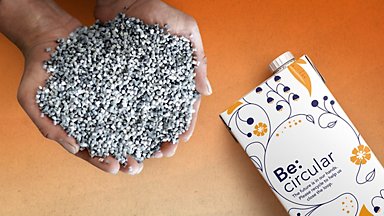Go nature. Go carton.
OVERVIEW ACTIONS SUSTAINABLE SOLUTIONS EXPLORE
Preventing plastic litter
The EU Single-Use Plastic (SUP) Directive, which mandates that single-use beverage containers made with plastic will only be allowed on the market if their caps and lids remain attached, will come into force in 2024. The directive is an integral part of the EU's wider approach announced in their Plastics Strategy and an important element of the EU Circular Economy Action Plan.
Tethered caps
Tethered caps are the latest additions to our range of openings and closures that aims to prevent littering, while enhancing the consumer experience. We have introduced tethered caps in 2021, well ahead of the legal obligation, as part of our ambition to deliver the world's most sustainable food package.1
Tethered tightly to the package, the cap is prevented from ending up on the street or in a waterway where it can harm fish or other aquatic life. The caps are available in a plant-based version, which increases the renewable share of the package and reduces its climate impact.
Discover more on our tethered cap portfolio here
Paper Straws
We are also accelerating the expansion of our paper straws offering to ensure further renewable and low-carbon materials across the range of packaging solutions.
1 This means creating cartons that are fully made of renewable or recycled materials, that are responsibly sourced, thereby helping to protect and restore our planet's climate, resources and biodiversity; contributing towards carbon-neutral production and distribution; are convenient and safe, therefore helping to enable a resilient food system; and are fully recyclable.





